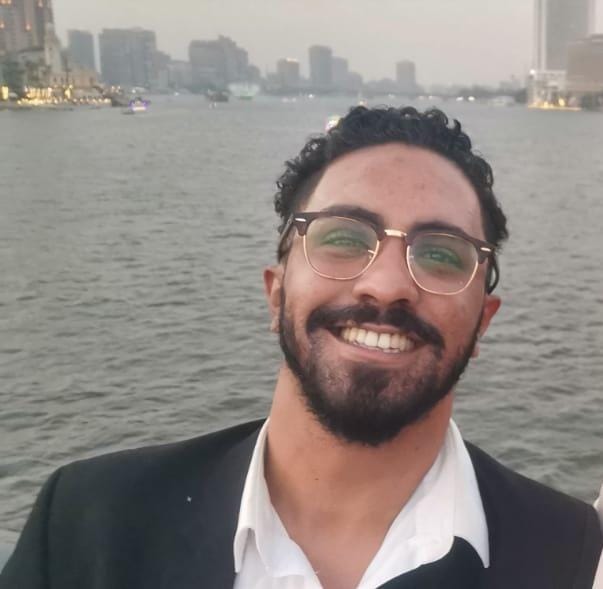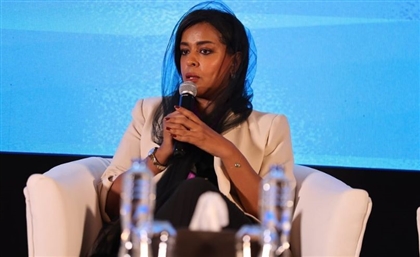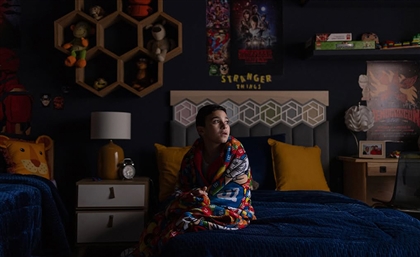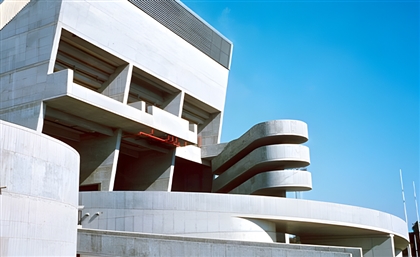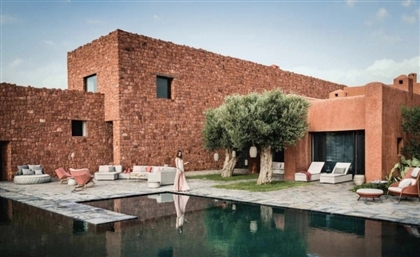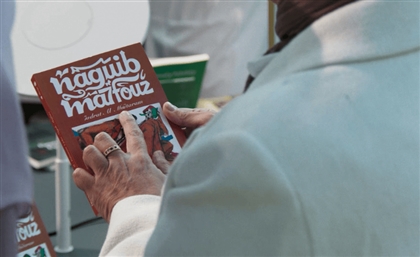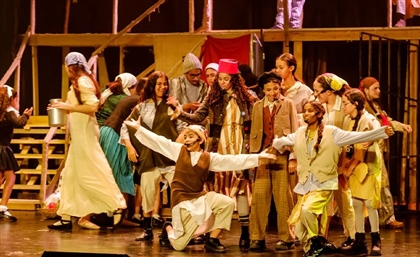Screenwriter Mariam Naoum on ‘Saudi’s Female Filmmakers of the Future’
The Egyptian screenwriter talks to us about her collaboration with Netflix and NEOM to encourage female voices in Saudi cinema.
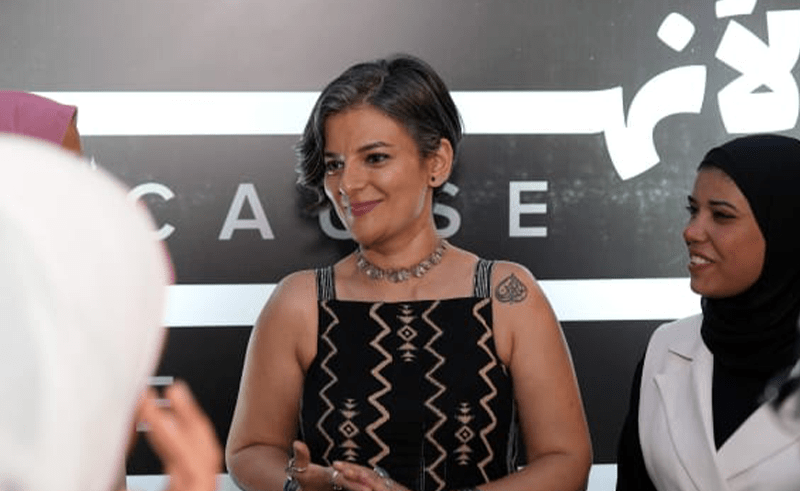
“Filmmaking is a very masculine industry in the Arab world,” veteran Egyptian screenwriter, Mariam Naoum, tells SceneNowSaudi. “Seeing other women manage to do it is inspiring and gives hope, and shows that it is possible. Without women in the cultural industry, you only get half of the culture of a society.”
Naoum’s pedigree in the Egyptian film industry is lauded for its realistic portrayals of Egyptian socio-political themes, in particular women’s issues, as well as for her immense work in furthering grassroots projects to encourage and platform aspiring creatives. Her works include the highly acclaimed 2014 series ‘Segn El Nesa’, documenting the lives of women in Egypt’s El Qanater Women’s Prison, and the 2013 series ‘A Girl Named Zat’ which follows the life of a woman navigating through Egypt’s socio-political changes from 1952 up until the present day. Amongst Naoum’s numerous accolades is her screenplay of ‘Between Two Seas’, which won the Best Screenplay Award at the Brooklyn Film Festival 2019.
-439a03d4-f366-4910-a042-ad204dd6927e.jpg) In 2016, Naoum created the Sard Writing Room and Sard Media Network to develop film projects, enhance creative writing potential amongst upcoming screenwriters and, most importantly, to bring together a collective of talented, youthful, aspiring film creatives. In 2022, Sard partnered with Netflix in the ‘Because She Created Writing Project’, which brought together a group of 22 Upper Egyptian women creatives to share their stories to the broader community.
In 2016, Naoum created the Sard Writing Room and Sard Media Network to develop film projects, enhance creative writing potential amongst upcoming screenwriters and, most importantly, to bring together a collective of talented, youthful, aspiring film creatives. In 2022, Sard partnered with Netflix in the ‘Because She Created Writing Project’, which brought together a group of 22 Upper Egyptian women creatives to share their stories to the broader community.
Looking to bring this same support for women across the Red Sea, a new partnership between Sard, Netflix and Saudi’s NEOM is now in the works. The ‘Saudi Arabia’s Female Filmmakers of the Future’ programme aims to hone the abilities of young, female Saudi creatives in film.-1a247dfd-9113-4a72-817c-e2688c5e4eeb.png) “Saudi Arabia’s artistic sphere has only recently radically changed, opening up a new space for diverse, never-before heard voices and stories,” Naoum says. She has conducted similar programmes with Egyptian women, and notes about the convergences and differences between Saudi and Egyptian creatives. “Even though we are similar in a shared Arab heritage, we have essentially different cultures, and this is expressed in our stories. For instance, Saudi heritage is deeply connected to their natural landscapes, the desert, and the ancient connection their forefathers had to the land, and this is often expressed in their storytelling.”
“Saudi Arabia’s artistic sphere has only recently radically changed, opening up a new space for diverse, never-before heard voices and stories,” Naoum says. She has conducted similar programmes with Egyptian women, and notes about the convergences and differences between Saudi and Egyptian creatives. “Even though we are similar in a shared Arab heritage, we have essentially different cultures, and this is expressed in our stories. For instance, Saudi heritage is deeply connected to their natural landscapes, the desert, and the ancient connection their forefathers had to the land, and this is often expressed in their storytelling.”
Saudi Arabia’s new creative opening is an exciting endeavour, opening an entirely new sphere of stories to the Arab world and beyond. Large amounts of investments and projects have been taking over the Kingdom in order to grow its cinema industry. MEFIC Capital, a Saudi investment firm, has invested around USD 100 million into expanding cinema in the Kingdom, while the Saudi film production market has reached an annual growth rate of more than 25%.
This opening up has not come without its challenges though - in a country where cinemas were banned from 1983 to 2018, the allowance of creative narration through the cinema now is radical, new, and refreshing. “Tackling this new wave of freedom is not easy for the youth and for aspiring creatives. There is an older generation which is not too happy with the latest developments, and this creates conflict between the generations. But conflict creates good stories, and we are keen to show these stories to the world,” shares Naoum. “What is happening in Saudi Arabia is compelling. It is a new way of seeing film. When the film industry started in Egypt over a century ago, we didn’t have the know-how or capabilities and we learnt our own ways. Saudi’s industry is budding from the soil now, and it is birthing new ways of storytelling and expression.”-fb4cc9a7-ffd8-43a0-8e7d-d10a12b8ed2c.png) The programme's applicants are Saudi women over 21 years old from diverse backgrounds. “We were keen to showcase women from different social classes and geographic locations, to give a broad perspective of the Saudi creative scene and general society,” says Naoum. 15 Saudi women will be accepted for the intensive 13-week programme, which will include a 12-week online training course starting in September, under the supervision of industry professionals. The online training will be followed by an eight-day in-person interview series at the Red Sea International Film Festival in Jeddah this December. The programme will focus on production, directing and screenwriting.
The programme's applicants are Saudi women over 21 years old from diverse backgrounds. “We were keen to showcase women from different social classes and geographic locations, to give a broad perspective of the Saudi creative scene and general society,” says Naoum. 15 Saudi women will be accepted for the intensive 13-week programme, which will include a 12-week online training course starting in September, under the supervision of industry professionals. The online training will be followed by an eight-day in-person interview series at the Red Sea International Film Festival in Jeddah this December. The programme will focus on production, directing and screenwriting.
Intended to help candidates from outside major urban centres get discovered, the programme is fully funded given that participants show full commitment to their studies. All accommodation, travel and meal expenses will be covered for the duration of time spent in Jeddah. “There is so much will, passion and creativity amongst this group of women, and we are excited to see its fruits,” Naoum says.
- Previous Article Italian-Palestinian Duo No Input Debuts Eponymous Electro EP
- Next Article Travel Across History on Egypt's Most Iconic Bridges







